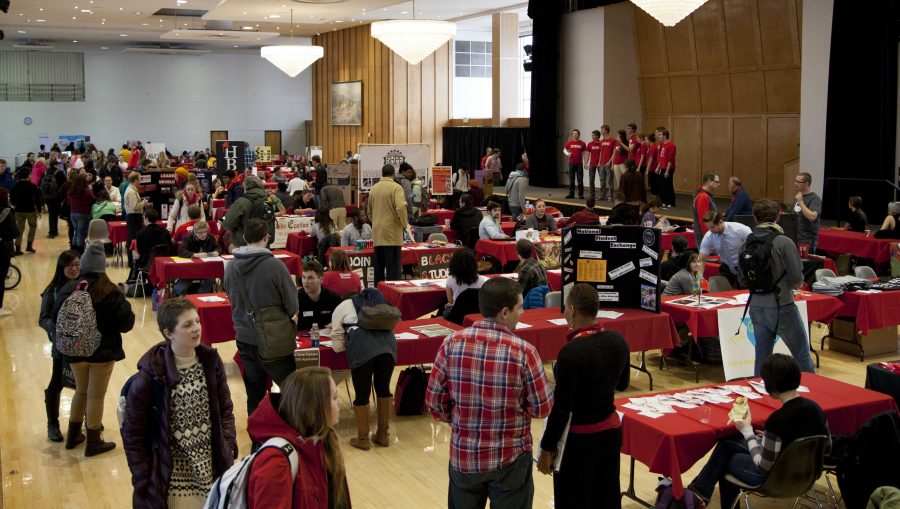The crux of “college involvement” advice is often related to the chance being involved in clubs and organizations will fill up your résumé and land you a really sweet gig after college. I tend to argue against this consideration when deciding which clubs to sign up for. Rather, when it comes down to your final days as an undergrad, the groups which you’ll easily and happily remember being involved with — which perhaps consist of your casual table tennis troop, a student-organized political gang, a rowdy yet socially-sensitive sorority or fraternity, or even your gawkiest Dungeons & Dragons basement hangout — will be the ones you were most likely to get involved with anyway. That is, it won’t be of much benefit to you to overly “involve” yourself when, really, over-committing for the sake of a partial résumé boost is not at all worth missing opportunities to join groups that are, to you, legitimately worth joining.
Enter PlazaFest. This bi-annual meet-and-greet is a unique and densely-populated opportunity to be bombarded by many organizations vying for your membership and participation. I recommend that you immerse yourself in it, to get the feel for college life by putting yourself squarely in its seamy middle. Some groups will push hard the fact that getting involved in any campus club looks better on a résumé or graduate school application than not, often while concurrently claiming that they are an organization that looks particularly good on applications. Be wary of this pitch. Scrutinize groups that tell you joining them is an excellent way to advance your career opportunities. Especially, look out for articles that claim to give you “5 Reasons for Getting Involved on Campus” and then proceed to tell you that résumé-boosting is an important factor.
It is, in fact, not.
My logic here comes partially from a Kantian perspective which argues that one cannot, with good moral reasoning, participate in clubs or organizations for the sole purpose of career advancement when the universalization of that action would directly cause a lot of shallow, duplicitous, self-obsessed, agenda-laden networkers to join every club promising some tangible return on time invested. You’d get, in this hypothetical, 100,000 Donald Trumps across the nation trying desperately to join the most elite, success-guaranteeing clubs. It’d become, more or less, a commercializable business, getting graduates into good jobs or advanced programs.
I like to think I tend toward the opposite approach, that I join student groups for the thrill of doing something I’ve never done or something I’ve always wanted to do, never intending in my heart of hearts to write my participation onto a CV. That I never network per se, and instead make legitimate friendships with people who share the same interests as I. This is so transgressive a thought among my business-minded acquaintances that I occasionally have reason to hope there’s reserved a special place in hell for those who tell me I must network more.
I will be told, likely by my own parents, that this argument is smoke and a whole lot of wishful thinking. They’d argue that networking, that being a member of groups I’d never otherwise join, is necessary to landing a decent job or getting into a decent graduate program, because I’ll be able to say I was a member of this fraternity, that I helped organize this relatively meaningless event or that I was paid to attend the weekly meetings of a dreary campus organization that actually only really helped me discover the limits of my capacity to live through mind-numbing tedium. I probably commit the fallacy of arguing from personal incredulity, but I cannot fathom how groups like these make me a more passionate, engaged and intelligent person.
Instead, I’d recommend you join only those clubs that offer you the opportunity to be a truly good person, to explore your deeper, perhaps unspoken, interests and to ignore any of that harmful career-centric advice. You’ve only got so much time to spend meeting people who are actually interesting, people who will be good friends rather than good co-workers. Spend this time wisely and not in the midst of practical, “career relevant” organizations where you simply cannot find joy.
Though a film major, you might be interested in joining the Aerospace Club; as an anthropology major, you might find it fascinating to pledge a sorority. There are any number of inspiring and relevant organizations you can join. I only ask that you check to see if you’re joining for the right reasons.


